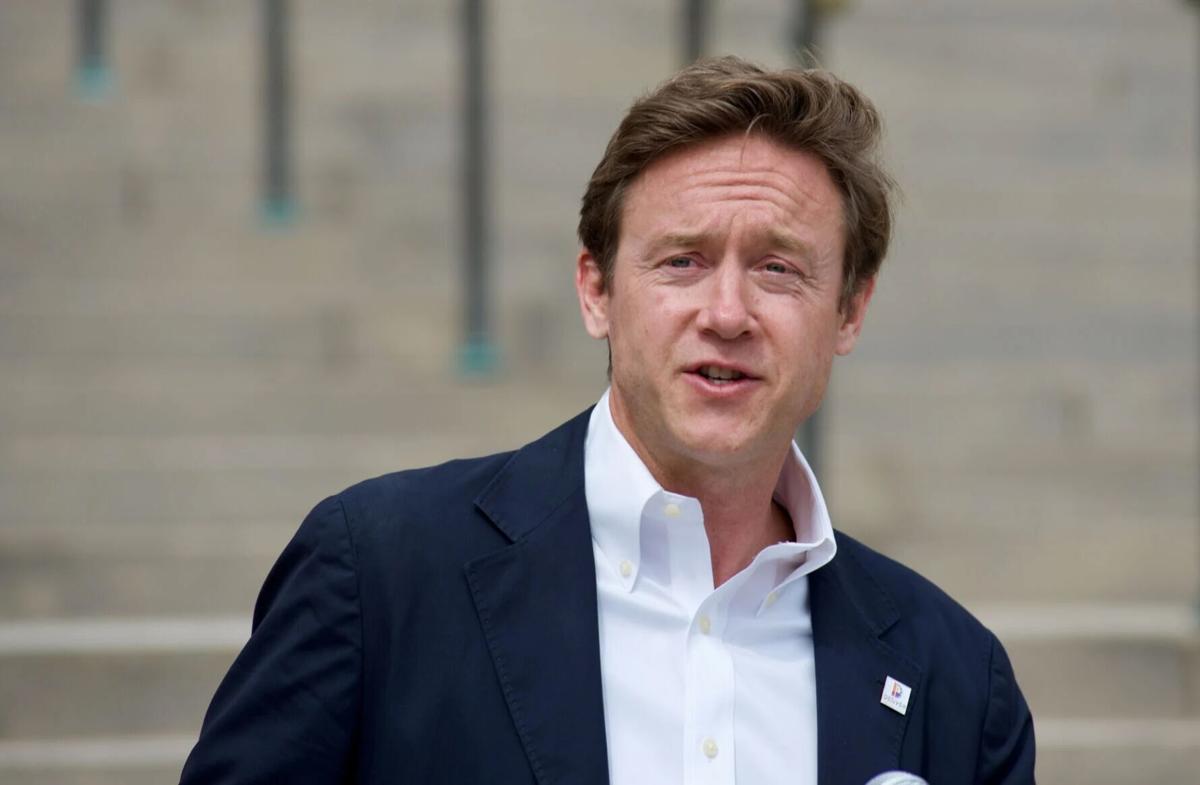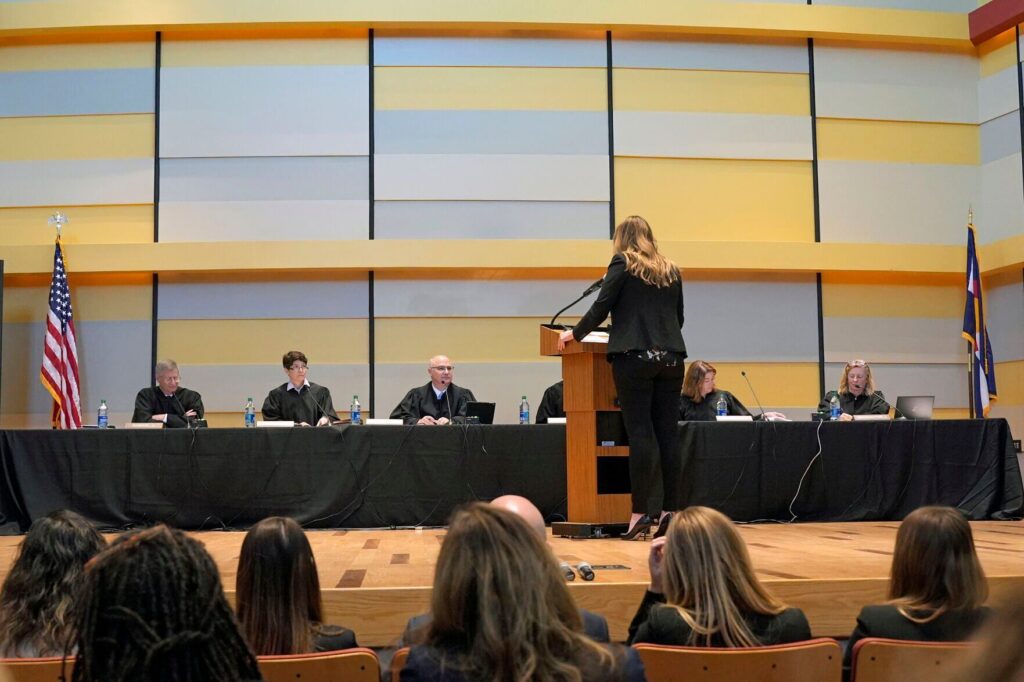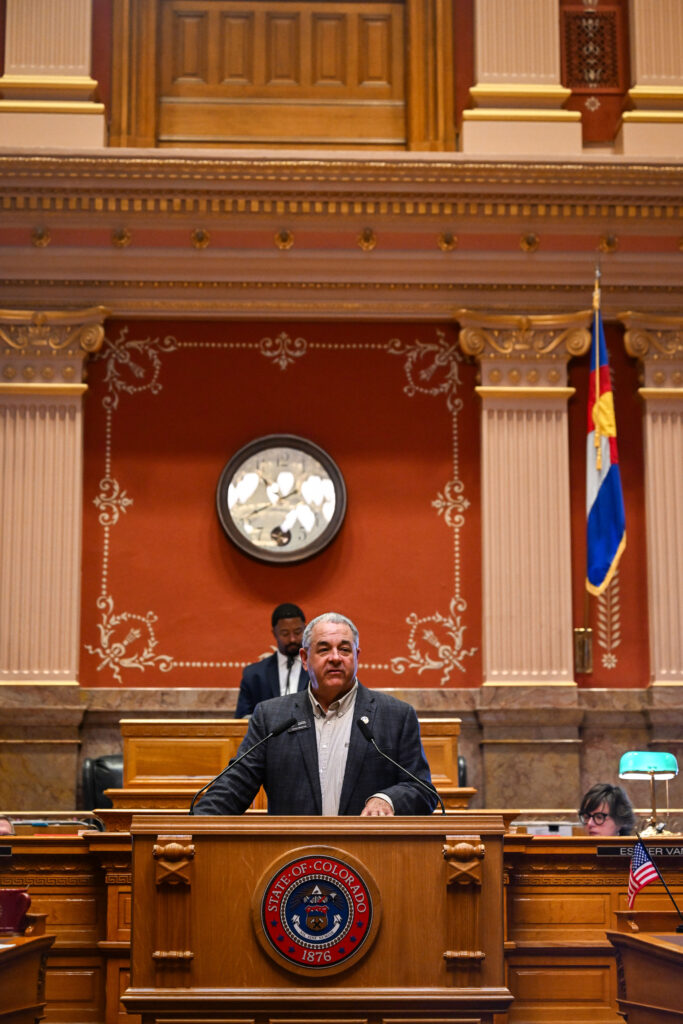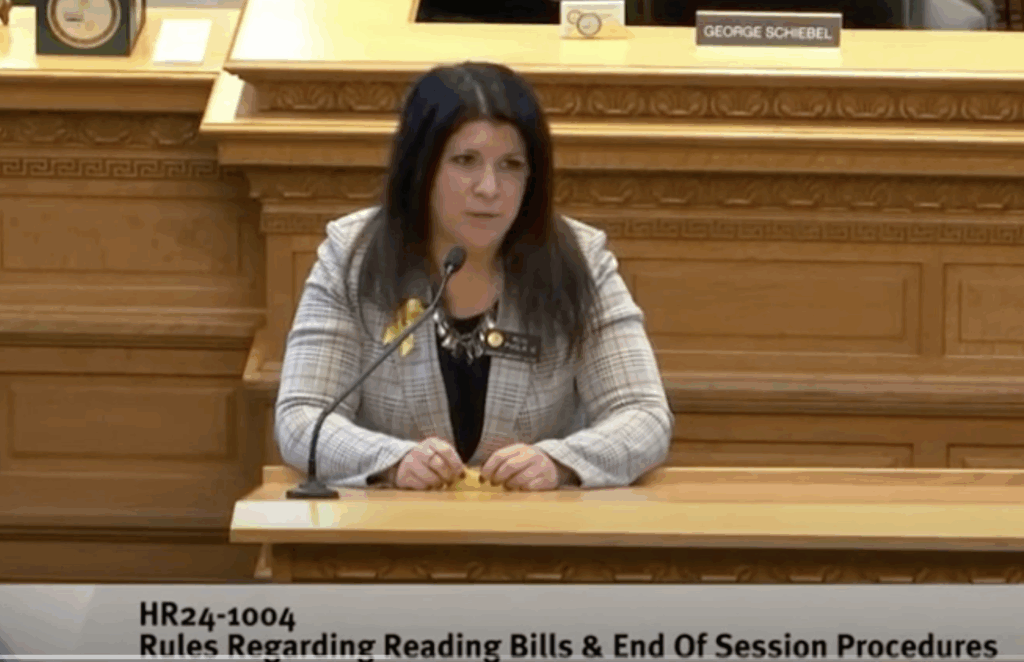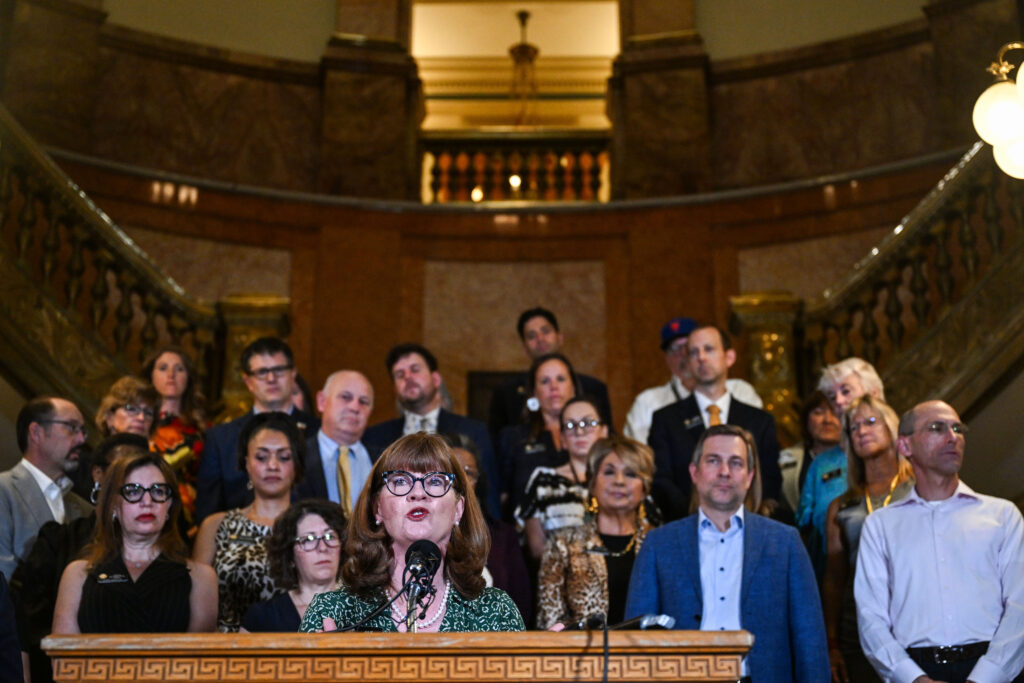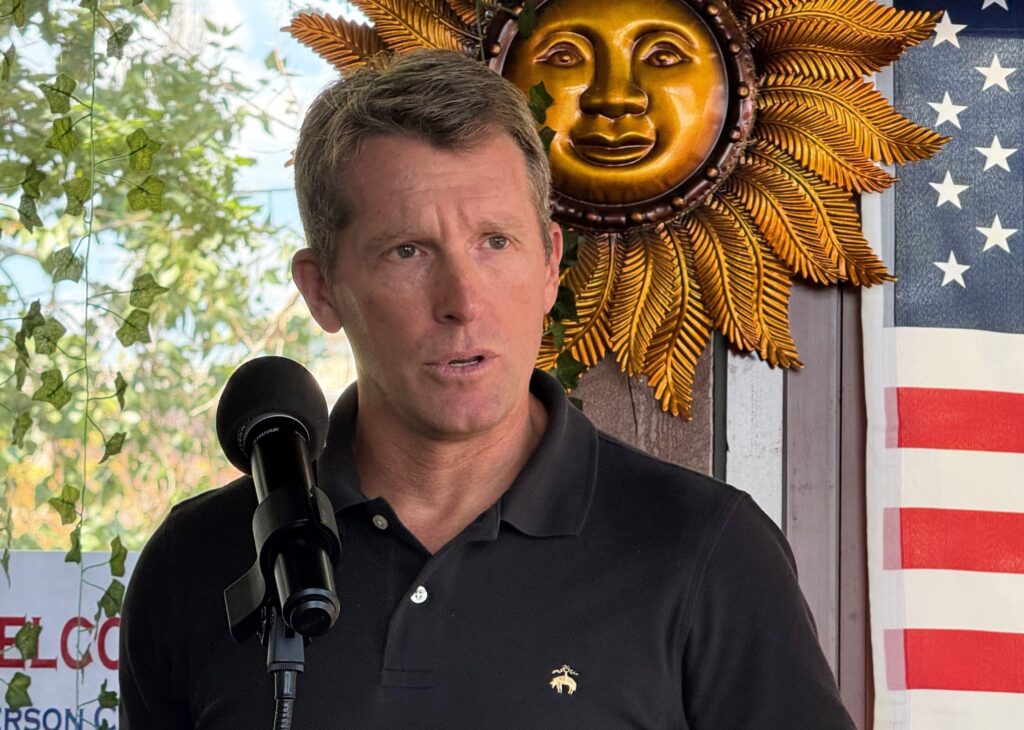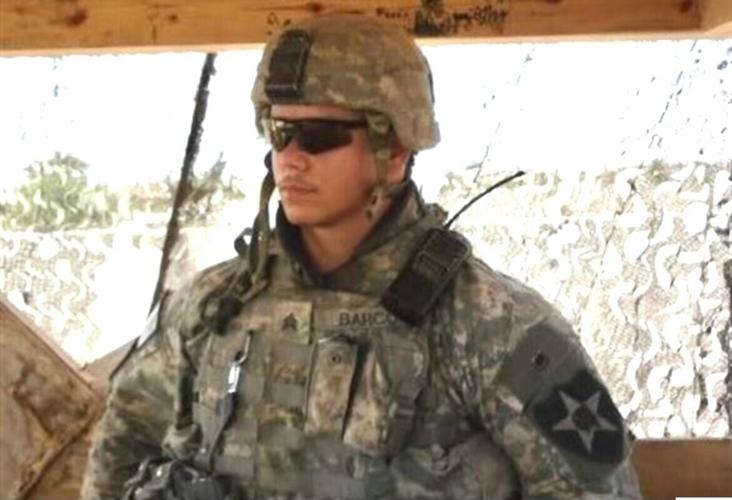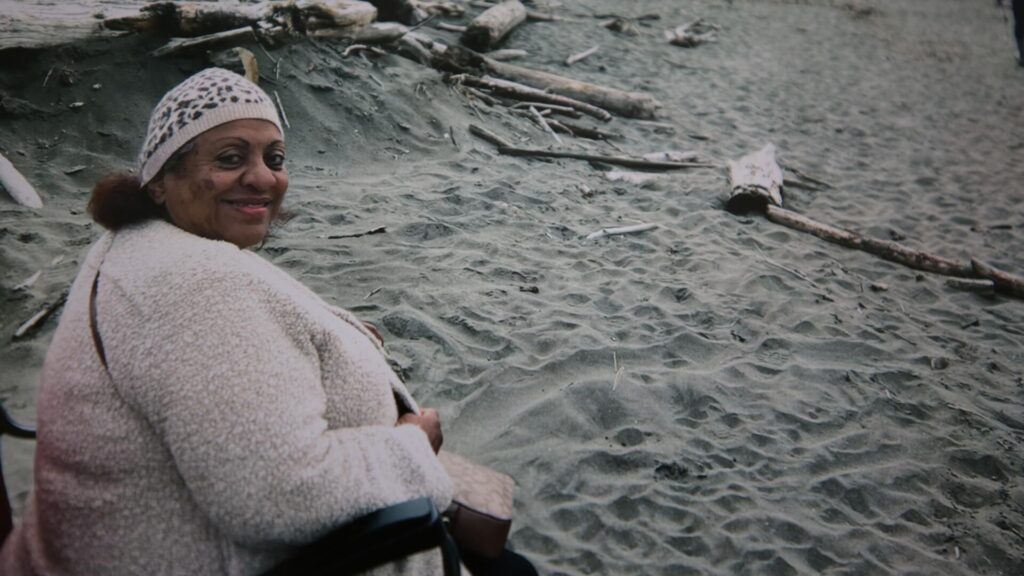Denver mayor touts ‘aggressive’ response to Tren de Aragua
Last August, Denver Mayor Mike Johnston appeared with Aurora Mayor Mike Coffman to effectively deliver one message: Claims of a Venezuelan gang takeover had been exaggerated.
On Tuesday, Johnston touted the city’s “aggressive” response to Tren de Aragua.
In a CNN interview, Johnston told Jake Tapper that Colorado’s most populous city had “been very aggressive on enforcement” on gang activity, in response to a question about the Venezuelan prison gang known as TdA.
“We were early with covert and overt operations in Denver to identify TdA members, arrest them, prosecute them,” Johnston said. “So, we’ve been very aggressive on this.”
Johnston made a similar statement back in August.
“We have overt and covert operations going every day,” he had said. “Where we know there are risks, we’re going to be aggressive about making arrests, about pressing charges and if needed deporting folks.”
Officials with the Denver Police Department had acknowledged the gang’s presence as early as August after a U.S. Department of Homeland Security bulletin surfaced, identifying that TdA gang members as having given “the green light” to attack or fire on law enforcement.
The Denver police have arrested four TdA gang members — two male minors and two adults — all of whom were apprehended between March and June last year. All face drug possession with intent to distribute charges.
Johnston has emerged as one of the leading figures in the response to the illegal immigration crisis. For critics of the nation’s immigration policies, the Denver mayor has become the face of policies that have worsened the crisis.
In that joint interview with Coffman in August, the mayors told 9News that exaggerated and inaccurate news coverage of the Venezuelan gang was creating “hysteria” that made it more difficult for the cities to combat TdA.
“The threat from TdA in Denver, it’s smaller than many other organized criminal networks that might have been here for decades, the ones you know, like the Bloods or the Crips or others, and so we’re monitoring it closely,” Johnston said.
Democratic leaders in Colorado — Gov. Jared Polis and U.S. Rep. Jason Crow among them — had been reluctant to give credence to claims that the gang had taken over two apartment complexes in Aurora.
Aurora officials also initially rejected claims by an apartment management company that the gang’s activities had precluded its staffers from caring for its tenants and buildings.
TdA is linked to various criminal activities that include drug and human trafficking — particularly immigrant women and girls and money laundering — kidnapping and extortion.
To combat the gang’s activities, Aurora officials have sought to close two apartment complexes TdA had been operating out of, a move that a gang expert at the University of Colorado at Boulder has called a “very rare” strategy.
The gang’s operation appears to be to get a foothold in a complex — through violence and intimidation — with the intent of collecting up to half of the rent from leaseholders, drying up collections for the landlord.
Last month, police detained more than a dozen TdA gang members suspected of being involved in an armed invasion in which a Venezuelan couple was bound, pistol-whipped and tortured.
And in an operation early Tuesday in the Bronx, federal agents also arrested Anderson Zambrano-Pacheco, 26, whom authorities said was one of the men captured in the viral video last summer and was involved in a June obduction, according to the Associated Press.
Early in the influx crisis, Denver officials decided that city taxpayers would assume the humanitarian response, spending more than $80 million on the effort.
Officials in El Paso, Texas, have said that, while well intended, the promise of free shelter and onward travel may have worsened the crisis in Denver.
“There’s a pull factor created by this, and the policies in Denver for paying for onward destinations,” Irene Gutiérrez, executive director of El Paso County Community Services, has said.
Nearly 43,000 immigrants — many from South and Central America, particularly Venezuela — have come to Denver over the past two years. Plane, train and bus tickets indicate that about half have stayed.


